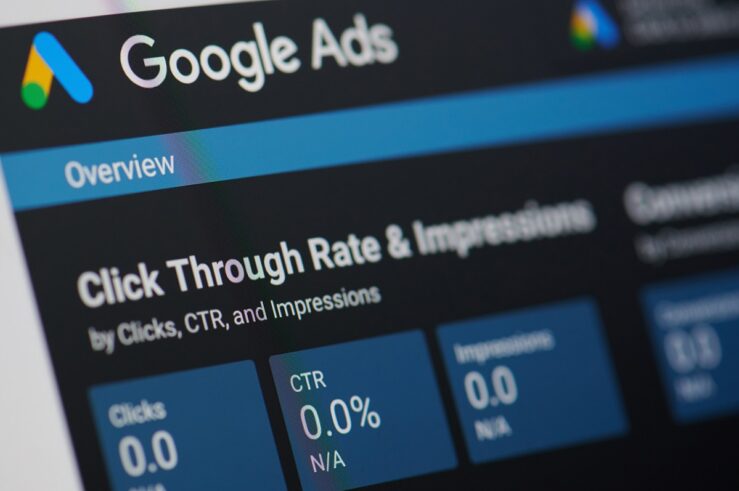Showing archive for: “Tying & Bundling”
The View from Korea: A TOTM Q&A with Dae Sik Hong
Professor Hong, could you please tell us a bit more about your background and how you got interested in digital competition regulation? In South Korea, I have unique combined experience as a court judge and as an antitrust specialist at a major law firm, conducting numerous research projects that connect theory and practice. I have ... The View from Korea: A TOTM Q&A with Dae Sik Hong
Forced Sharing: Stepping Stones or Stumbling Blocks?
Recent headlines about the U.S. Justice Department’s (DOJ) antitrust case targeting Google Search echo a familiar policy script. In a recent Wall Street Journal op-ed, Thomas Lenard and Scott Wallsten warn that forcing Google to share its technology could undermine innovation—a lesson they say we should have learned from telecommunications policy decades ago. In 1996, ... Forced Sharing: Stepping Stones or Stumbling Blocks?
European Competition Law Is Lost at Sea
Imagine a world where digital-competition policy was guided by a desire to foster startup activity, competitiveness and, ultimately, growth. Competition policymakers would promote market conditions that enable new digital services to rapidly launch, gain user traction, and achieve greater scale. All of this would improve productivity, drive down prices for existing services, and help to ... European Competition Law Is Lost at Sea
The View from India: A TOTM Q&A with Shivanghi Sukumar
Could you tell us a bit about your background and how you got interested in digital competition regulation? I am a competition lawyer, and have been practicing competition law in India since the early days of its enforcement. A big part of my work has been related to the enforcement of behavioral provisions, and I’ve ... The View from India: A TOTM Q&A with Shivanghi Sukumar
Lessons from Korea’s Roller-Coaster Ride Toward Platform (Non)Regulation
The Korea Fair Trade Commission (KFTC), the nation’s competition authority, announced Sept. 9 that it had abandoned plans for comprehensive platform regulation modeled after the European Union’s Digital Markets Act (DMA) or Section 19a of Germany’s Competition Act. The proposed Korean regulation would have involved an ex-ante designation process, alongside stringent prohibitions. The KFTC noted ... Lessons from Korea’s Roller-Coaster Ride Toward Platform (Non)Regulation
Justice Department’s Google Adtech Antitrust Suit Does Not Add Up
The trial of the U.S. Justice Department’s (DOJ) “adtech” antitrust lawsuit against Google kicked off Sept. 9 in U.S. District Court in Alexandria, Virginia. In a nutshell, the DOJ (joined by 17 states) argues that Google illegally monopolized key digital-advertising technologies through a variety of anticompetitive tactics. But the DOJ will find it difficult to ... Justice Department’s Google Adtech Antitrust Suit Does Not Add Up
The Silly Season in Antitrust: The Hermès Case
For six generations, Hermès has epitomized French luxury, making and selling its iconic scarves, belts, jewelry, and, of course, handbags. Some Hermès products, including its Birkin and Kelly bags, are so exclusive that they can’t be bought off the shelf. Customers first have to establish a relationship with the house to purchase these specialty bags. ... The Silly Season in Antitrust: The Hermès Case
Draft Merger Guidelines Do Not ‘Return Antitrust to a Sound Economic and Legal Foundation’ – A Response to Professor Kwoka
In a recently published article in ProMarket, John Kwoka of Northeastern University (who “worked on the draft Merger Guidelines while serving at the Federal Trade Commission as chief economist to the chair in 2022”) asserts that the U.S. Justice Department (DOJ) and Federal Trade Commission’s (FTC) draft merger guidelines aim to improve “deficient merger enforcement” ... Draft Merger Guidelines Do Not ‘Return Antitrust to a Sound Economic and Legal Foundation’ – A Response to Professor Kwoka
The FTC Tacks Into the Gale, Battening No Hatches: Part 2
Part 1 of this piece can be found here. Emergence of the ‘Neo-Brandeisians’ Thus, matters unfolded until the curtain began to descend on the second Obama term in 2016. In the midst of presidential primary season, a targeted political challenge to the prevailing economic approach to antitrust first came to light. No one has yet ... The FTC Tacks Into the Gale, Battening No Hatches: Part 2
The FTC Tacks Into the Gale, Battening No Hatches: Part 1
The Evolution of FTC Antitrust Enforcement – Highlights of Its Origins and Major Trends 1910-1914 – Creation and Launch The election of 1912, which led to the creation of the Federal Trade Commission (FTC), occurred at the apex of the Progressive Era. Since antebellum times, Grover Cleveland had been the only Democrat elected as president. ... The FTC Tacks Into the Gale, Battening No Hatches: Part 1
FTC v Amgen: The Economics of Bundled Discounts, Part One
The Federal Trade Commission (FTC) recently announced that it would seek to block Amgen’s proposed $27.8 billion acquisition of Horizon Therapeutics. The move was the culmination of several years’ worth of increased scrutiny from both Congress and the FTC into antitrust issues in the biopharmaceutical industry. While the FTC’s move didn’t elicit much public comment, ... FTC v Amgen: The Economics of Bundled Discounts, Part One
After the FTX Crash, What’s Next for Crypto?
For many observers, the collapse of the crypto exchange FTX understandably raises questions about the future of the crypto economy, or even of public blockchains as a technology. The topic is high on the agenda of the U.S. Congress this week, with the House Financial Services Committee set for a Dec. 13 hearing with FTX ... After the FTX Crash, What’s Next for Crypto?
















